Green growth
Sustainable businesses will be tomorrow’s winners
The companies in our portfolio are active within different industries and regions, which naturally creates a wide variety of unique opportunities and challenges. The sustainability work carried out in some of our companies is described here.
Lessebo Paper
As a Swedish paper manufacturer, Lessebo Paper has undertaken to develop high-performance, environmentally responsible paper for the international market. In 2021, Lessebo Paper published an environmental statement reporting record low fossil CO2 emissions. Carbon dioxide emissions have been reduced by 79% since 2013, marking a milestone in the company’s strong focus on responsible production with the environment in mind.
Production of paper products from Lessebo Paper generates 11 kg of CO2 per tonne of finished paper. On average, a producer of similar products in Europe discharges 616 kg of CO2 per tonne of finished paper. This figure includes emissions from
the production of both pulp and paper, an industry-standard accounting method in the paper industry. This shows that products from Lessebo Paper generate only a fraction of the carbon dioxide emissions compared to those from an average paper mill with a similar product mix.
To consolidate Lessebo Paper’s strong environmental profile, the paper producer launched the Climate Compass in 2020, a guide that delves into detail about everything regarding the environment and paper. Green initiatives that Lessebo Paper is working on are highlighted, such as the use of waste energy from production to heat buildings in the community of Lessebo via the local district heating network. The Climate Compass is a unique publication that invites customers to participate in the sustainable paper discussion.
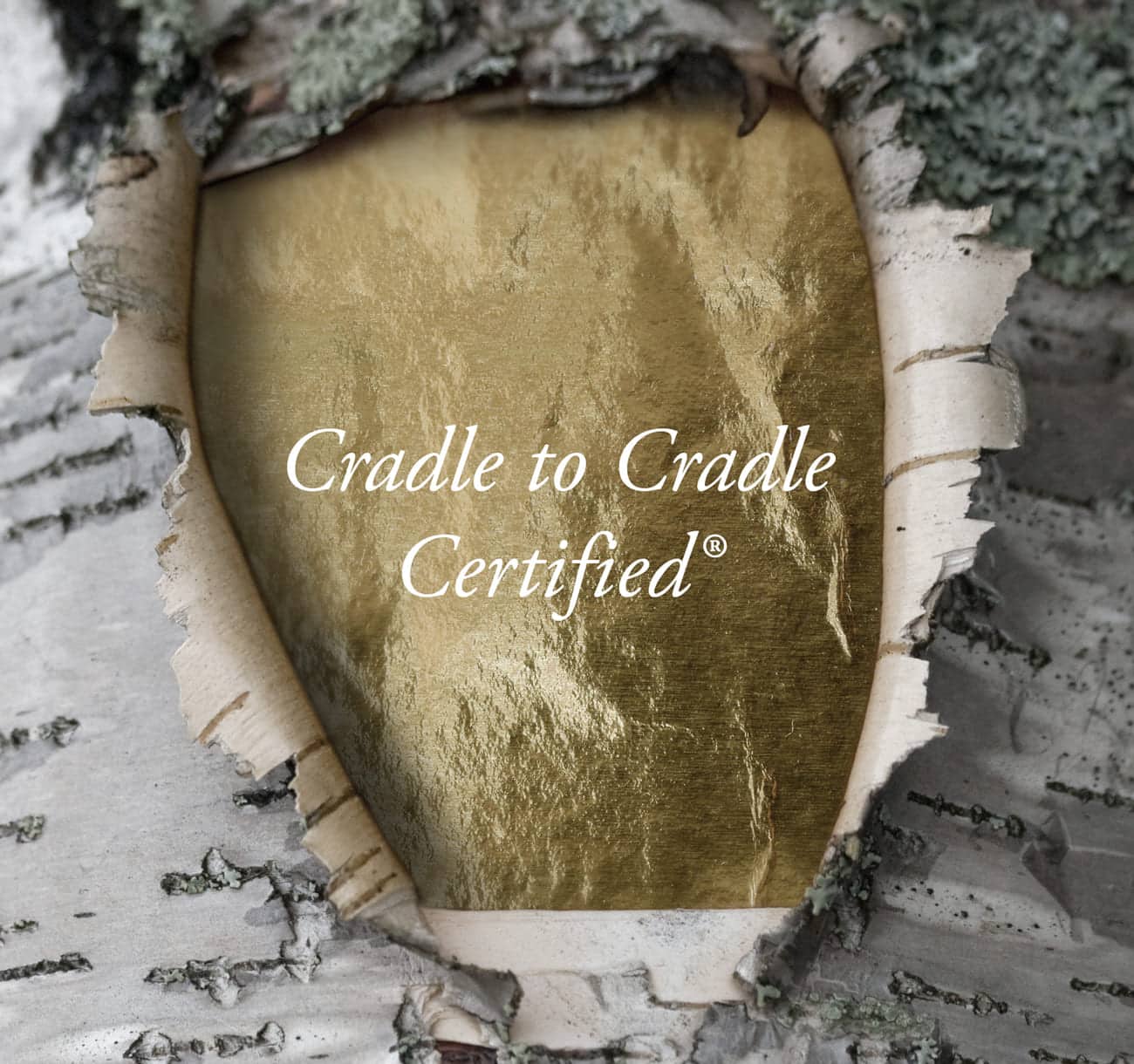
World first
Lessebo Paper has invested further in eco-friendly production, and in 2021 the company received Cradle to Cradle Certified® Gold environmental accreditation for its Scandia 2000 and Lessebo Design white paper grades. Cradle to Cradle Certified® is an environmental accreditation that has examined the environmental impact of products from a life cycle perspective, from raw materials to end product and recyclability. Lessebo Paper’s paper grades are the first in the world to meet the requirements for Gold accreditation.

Certificates
Lessebo Paper meets the most stringent environmental requirements and the paper may be used for printed matter marked with the reputable Nordic Ecolabel.






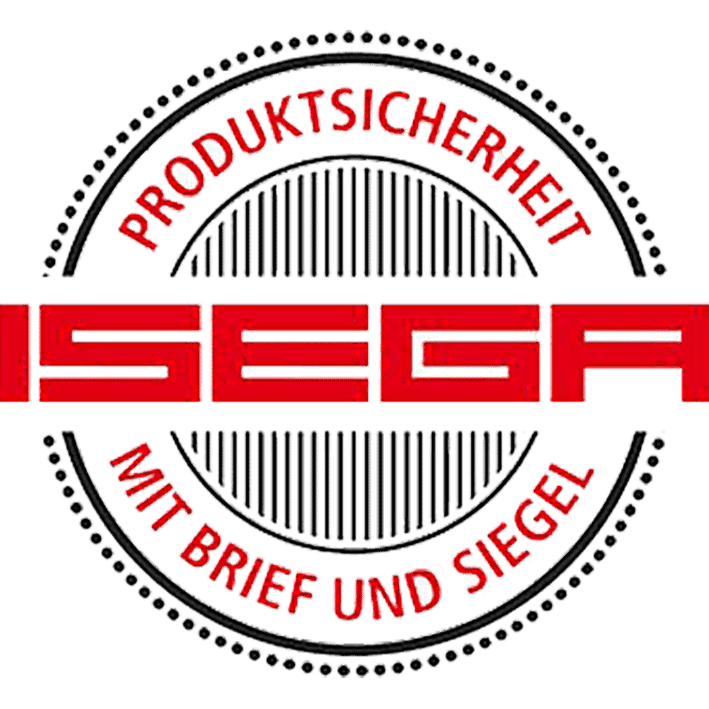
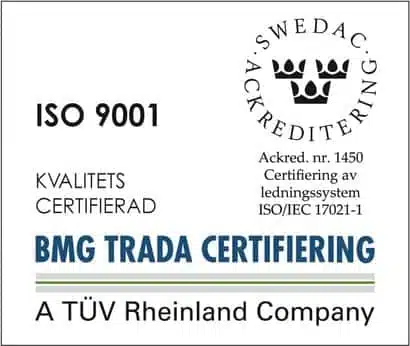
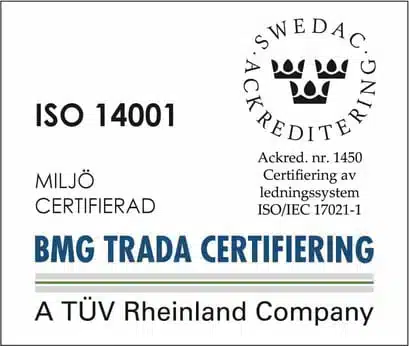











Navigo Invest
Navigo supports the framework of the Task Force on Climate-related Financial Disclosures (TCFD). The company has also begun developing its sustainability efforts and reporting to align with the transformation towards the CSRD and ESRS legislation. Navigo plans to focus on implementing processes and routines to enable reporting by the EU’s new sustainability requirements, prioritizing sustainability areas where they can have the most significant impact relative to their stakeholders, and further developing how they can support and drive sustainability issues in their portfolio companies.
Navigo aims to conduct a long-term sustainable investment business. Since Navigo’s operations are limited in size, the most significant impact on sustainability has been identified in how they choose to invest and how Navigo further supports and drives sustainability issues with accompanying requirements in their group and portfolio companies. Navigo is continuously working on streamlining its digital sustainability management, launching a digital sustainability training program for its employees, and has begun transitioning the group towards the EU’s new directives and standards for sustainability reporting, the Corporate Sustainability Reporting Directive (CSRD), and the European Sustainability Reporting Standards (ESRS).

Sustainability Framework
Navigo and key individuals from its group companies have identified global sustainability goals from the UN’s Agenda 2030 linked to their material issues. The company has chosen to work with the global goals to provide greater context for its efforts while focusing on a sustainable society and competitive solutions. Navigo is convinced that environmental and climate issues are among the most significant challenges of our time, and companies that handle these issues well will, in their view, be more competitive in the future, making it a good business opportunity as well. Therefore, most of their global goals are focused on the environmental and climate areas.
Material Sustainability Issues Anchored in the Global Goals from the UN’s Agenda 2030
Economic Sustainability
- Business Ethics and Anti-Corruption
- Investment Criteria Linked to Sustainability
- Long-Term Profitability
- Corporate Governance
Material Sustainability Issues Anchored in the Global Goals from the UN’s Agenda 2030
Social Sustainability
- Equality and Diversity Efforts
- Employees
- Supplier Follow-up
- Community Impact
Environmental Sustainability
- Energy and Climate
- Supplier Follow-up
- Material Efficiency
Sustainability in the Navigo Group
Vinga
Vinga Corporate Finance has served as an advisor on bond issuance for Regenergy Frövi, the largest greenhouse in the Nordic region. The greenhouse uses waste heat from Billerud’s nearby industrial operations. The greenhouse is expected to produce up to 19,600 tons of locally grown tomatoes annually. This production volume represents approximately one in every five tomatoes currently consumed in Sweden, contributing significantly to Sweden’s self-sufficiency.
In this project, Vinga also advised the development company behind the greenhouse, WA3RM AB, which developed its first Green Bond Framework to cover the current bond issuance. The framework has been reviewed by DNV, a global company specializing in assurance and risk management. The Green Bond Framework aligns with the ICMA Green Bond Principles, covering investments in areas such as energy efficiency, pollution prevention and control, environmentally sustainable management of living natural resources and land use, climate change adaptation, environmentally friendly products and/or products designed for the circular economy, production techniques and processes, and green buildings.
Vinga is a member of the Climate Bonds Initiative, which certifies green bonds. Through this membership, Vinga can provide access to the green bond market for both small and medium-sized enterprises

Green bonds can be verified and issued in a large and growing number of industries, including:
Energy-efficient buildings and housing projects
Sustainable forestry and agriculture
Clean transport
Solar, wind, and other renewable energy sources
CalorMet
The company collaborates with leading suppliers to implement energy-efficient machinery utilizing vacuum technology, which significantly reduces process gas emissions.
CalorMet has observed increasing customer interest in energy efficiency and refurbishment of existing equipment. Heat calculations are performed during furnace renovations, allowing CalorMet to suggest more energy-saving measures for insulation and convert gas-heated machines to electric heating using various customized element solutions. The company also conducts analyses of customers’ machinery to identify potential energy savings and minimize energy losses.
Chemgroup
Chemgroup helps customers improve their environmental impact through better chemical management. The company is a comprehensive supplier of smart chemical handling, offering services that include chemical product management, warehousing, distribution, and consultancy services related to regulatory compliance, training, waste management, and handling of safety data sheets.
Chemgroup has secured contracts with clients such as Region Östergötland, where they provide a chemical management system. The agreement covers various operations, from healthcare to traffic and cultural services, and enables a collaboration lasting over 10 years. Through Chemgroup’s system, users can identify hazardous chemicals and suggest more environmentally friendly alternatives.
Another major contract is with Adda Inköpscentral, where Chemgroup is the supplier for the “Chemicals for Operations and Maintenance” agreement. This framework agreement allows over 1,100 entities across 290 municipalities and 21 regions to purchase chemicals from Chemgroup, facilitating a transition to more sustainable chemical management.
ESS-ENN aims to be sustainability role model
ESS-ENN Timber’s ambition is to be a role model when it comes to sustainability. The company performs a wide range of activities in the timber products industry and works hard to maintain good relations with both customers and employees, who are given opportunities to develop their skills.
“Timber is a fantastic and durable material offering endless possibilities. We also feel we give something back to nature due to the fact that our machinery is operated in an energy-efficient and circular manner as well,” says Caroline Troedson, Site Manager at ESS-ENN Timber.
“This includes sustainable and safe practices within the company, human rights and how we look after the environment as well as we can,” explains Troedson.
The timber used by ESS-ENN comes exclusively from Swedish forests, which streamlines logistics and reduces transports. Deforestation reduces nature’s ability to absorb carbon dioxide from the atmosphere, and so the company is working actively on replanting trees.
“At least two new trees are planted for each tree harvested, which will safeguard the forests of the future. Young forest also captures more CO2 than old forest.”
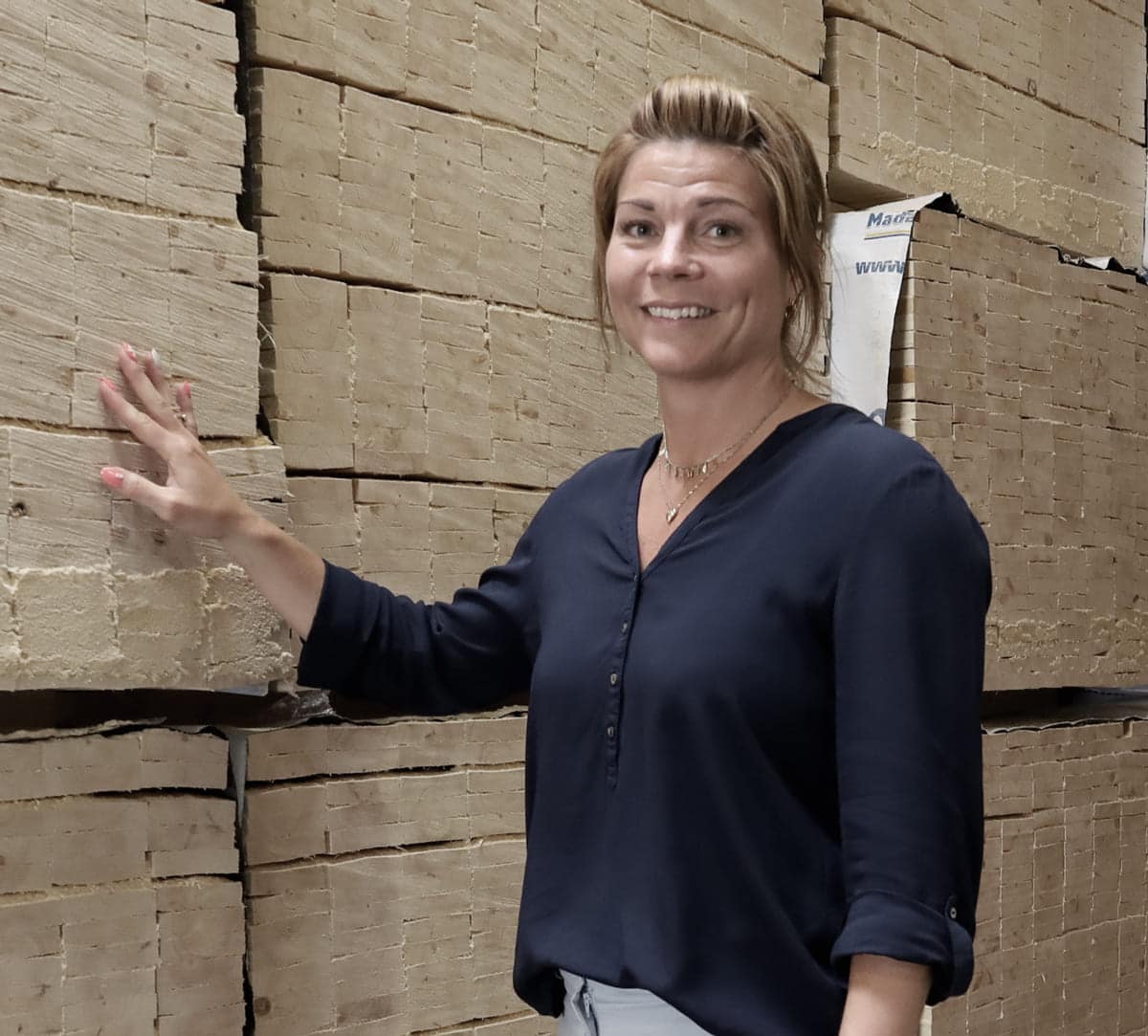
Investing in staff
The company is currently operating with good profitability. How the company manages its relationships with both customers and employees is one of the keys to its success. The employee who has been with the company the longest has worked at ESS-ENN since 1983, covering almost the entire 40-year history of the company.
“It is important to invest in staff. We are now actively working to meet the needs of our employees. This is being done by means of skills development, for example, but also by involving them more in the running of the business.”

